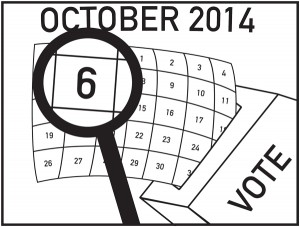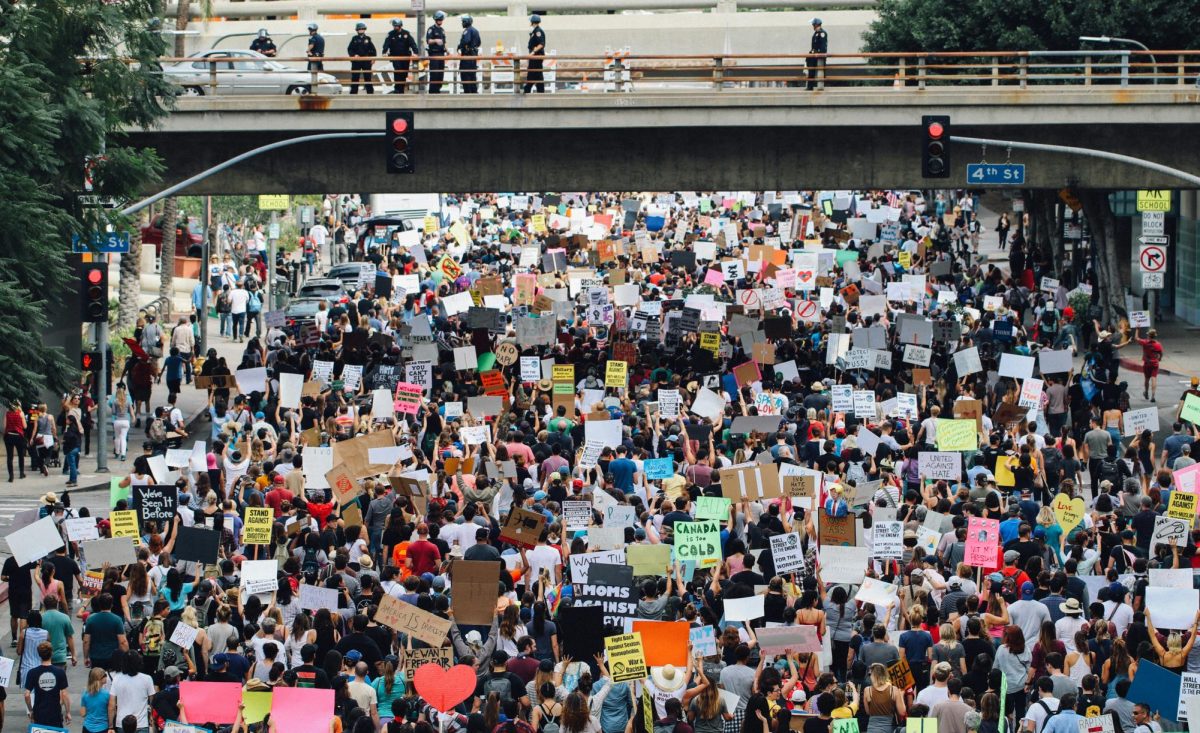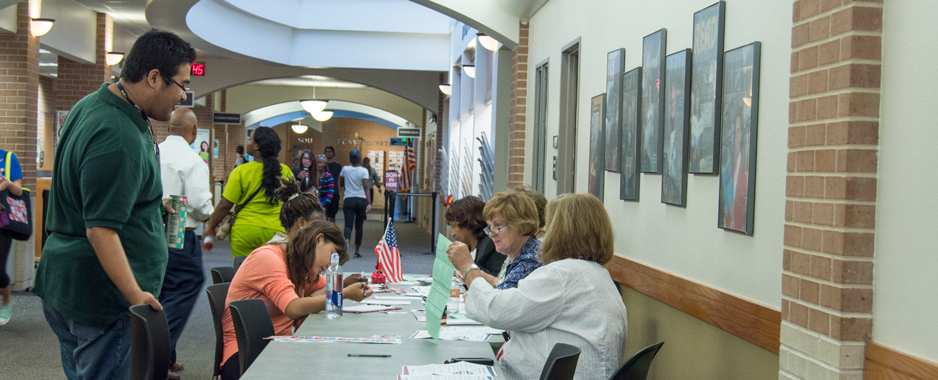In a democracy like the United States, voting is essential.
But before voters show up, they need to be registered to vote.
Texas’ voter registration deadline is Oct. 6, and new voters should take note if they want to participate in the November election.
Registering is the biggest piece of the pie. It’s not obvious where to even begin to register, but thankfully, there’s a number of ways to do it.
New voters can get an application online, but they can’t submit it that way.
For example, the Tarrant County Elections site has the application available, but the big yellow box at the top of the page informs people to physically drop it off or mail it to its building in Fort Worth.
If new voters prefer to turn in the form in person, they can go to several county buildings.
At the Department of Motor Vehicles, people applying for a photo ID or a driver’s license can tick a box that would automatically register them to vote.

New voters can also go to post offices, city halls, libraries, public assistance offices and Tarrant County sub-courthouses.
Voter registration is definitely not the most efficient process in Texas, which requires people wanting to vote in an upcoming election to register 30 days before Election Day.
The process can be frustrating as it takes a while to receive the actual voter card in the mail.
Texas has the reputation for being one of the hardest states to vote in. Only 14 other states set their registration deadline 30 days before Election Day. In seven states, voters can register on Election Day.
On top of the ridiculously early date to register, there’s also the requirement by law to bring identification, part of a new law being challenged in court.
This is a trend that’s spread through the country over the last few years and caused controversy in its wake. Voter ID laws complicate some citizens’ ability to vote, especially those who can’t afford or who have limited access to a DMV office.
Despite all the complications and the hoops new voters must jump through, voting is still the single most important act a person can partake in, regardless of where they live.
To contribute a voice to the conversation, someone has to vote. It’s possibly the loudest voice a citizen will get in the political process.
And in retrospect, this is an unalienable right, a right that was worth fighting for during numerous wars, marching in the streets for during the women’s suffrage period of the early 20th century and even dying for during the civil rights movement of the 1950s and ’60s.
Compared against the literacy tests and the overall discouragement and threats people faced during the civil rights movement, it seems almost petty and inconsequential to groan about having to download an application online and mail it in.
But no matter how tedious and how long the process may seem, it’s all for a better purpose.
So register by Oct. 6.



























